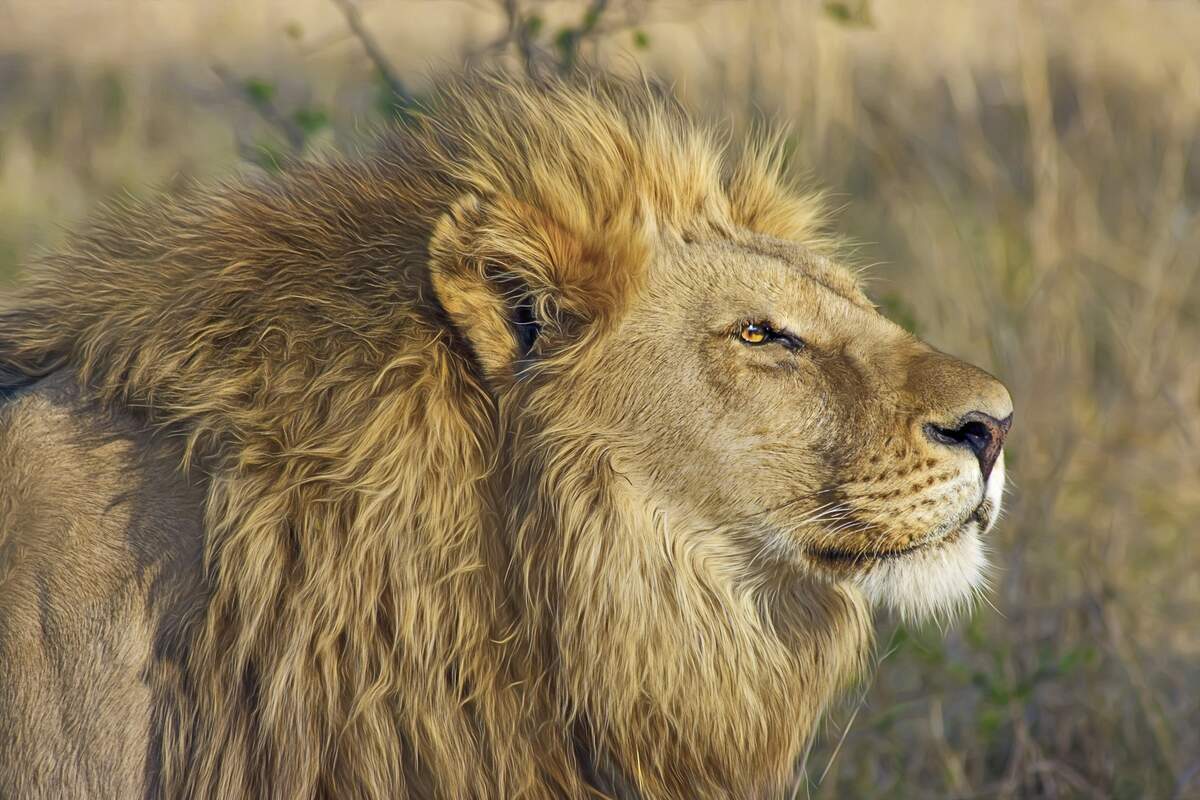

World Lion Day
Observed
annually on August 10th (since 2013)
Dates
Founded by
Beverly Joubert in 2013
Dereck Joubert in 2013
Tags
Pets & Animals
Hashtags
Sources
https://web.archive.org/web/20131213055442/http://worldlionday.com/
https://web.archive.org/web/20200819165737/https://www.worldlionday.com/
https://www.britannica.com/animal/lion
https://www.cnbctv18.com/wildlife/world-lion-day-august-10-all-you-need-to-know-14418602.htm
https://www.facebook.com/WorldLionDay/
World Lion Day, the "first global campaign to celebrate the importance of the lion worldwide," raises awareness about the conservation of lions and highlights the plight they face. It was founded by husband and wife Dereck and Beverly Joubert, wildlife filmmakers and conservationists, who with National Geographic also founded the Big Cats Initiative, which now is the Great Plains Big Cat Initiative.
The lion, panthera leo, is considered to be the "King of Beasts," and is the second biggest cat after the tiger. It plays a consequential ecological role due to it being the top predator, helping maintain equilibrium so that other flora and fauna remain healthy. Its importance has made it the national symbol of a number of nations. Lions were once found in Europe, North America, Asia, and Africa, but are now only found in Sub-Saharan Africa and in a small part of Asia. Lions are threatened by habitat loss, prey loss, human-wildlife conflict, trophy hunting, poaching, disease, and inbreeding. Conflict with humans is especially a problem for lions, particularly outside of protective parks and because of herders. The International Union for Conservation of Nature's (IUCN) Red List of Threatened Species lists them as a vulnerable species.
The IUCN recognizes two subspecies of lions: African lions and Asiatic lions. In 1975, there were estimated to be 250,000 lions in Africa, but by the 2010s there were only about 25,000 to 30,000. They play a large role in Africa's tourism, where they are part of the "Big Five." Asiatic lions are rare and are found in the jungles of India, under the protection of Gir National Park and Wildlife Sanctuary. After almost becoming extinct, they were awarded protection. There were about 186 Asiatic lions in 1975, over 400 in the 2010s, and about 650 in the 2020s.
Male lions are 6 to 7 feet in length, nearly 4 feet tall at their shoulders, and weigh between 370 and 500 pounds. They have manes, which vary in appearance. Female lionesses are a bit smaller, about 5 feet in length, and about 3 or 3.5 feet tall at their shoulders. Lion cubs can follow their mothers after about the age of three months and are weaned by six or seven months. They may begin hunting before they are one but are unable to survive on their own until about the age of two.
Lions live in groups called prides, which usually consist of about 15 lions. They use roaring and scent markings to claim their territory. Prides generally break into a handful of smaller groups but often come together to hunt or share food. Lions eat small animals like rodents and very large ones like African buffalos and hippopotamuses. They mainly eat medium to large-hoofed animals like wildebeests, antelopes, and zebras. But, they eat any meat they can find—this includes carrion and fresh kills they forcefully take from other animals.
How to Observe World Lion Day
Celebrate the importance of the lion by raising awareness about the plight they face and about their conservation. You could attend or organize a seminar dedicated to lion conservation. There are an innumerable number of organizations devoted to lions that you could learn about and support:
- African Lion & Environmental Research Trust
- African Parks
- Africat Foundation, Namibia
- Animal Defenders International
- Conservation Lower Zambezi
- Desert Lion Conservation Project
- Etosha Lion Project
- Ewaso Lions
- Global White Lion Protection Trust
- Great Plains Big Cat Initiative
- International Fund for Animal Welfare
- LionAid
- Lion Guardians
- Mara Naboisho Lion Project
- Niassa Carnivore Project
- Rebuilding the Pride
- Ruaha Carnivore Project
- Tashinga Initiative
- Uganda Conservation Foundation
- Victoria Falls Anti Poaching Unit
There are other ways you could mark the day. Plan a trip to see lions in the wild. Read a book about lions. Watch a film about lions, such as The Last Lions, a film created by the founders of World Lion Day.





















